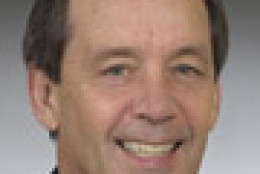Hubbard Radio Washington DC, LLC. All rights reserved. This website is not intended for users located within the European Economic Area.
Workforce
-
A reverse retirement wave is challenging chief human capital officers to rethink how they plan their workforce in FY 2020 and beyond. Two agencies -- one large, one medium -- described how to find success in one of the most important parts of that planning process: Building and maintaining a fluid pipeline of incoming and outgoing career employees.
April 30, 2015 -
Federal News Radio\'s Michael O\'Connell and Nicole Ogrysko launch Studio Y, an audio podcast in which millennials talk about working for the federal government.
April 30, 2015 -
Every other week, Federal News Radio\'s Michael O\'Connell and Nicole Ogrysko talk to members of Generation Y as they share their perspective as young members of the federal workforce. On our first episode of \"Studio Y,\" two young federal employees with the General Services Administration\'s 18F innovation lab explain how they -- and others -- perceive their age.
April 30, 2015 -
While statistics show that baby boomers within the federal government are in no hurry to retire now, eventually that day will come. And the new leaders who will take their place want to work for a government that is nimble and uses technology to its advantage. In the final part of Federal News Radio\'s special report, The Reverse Retirement Wave, we take a look towards the future. What will the workforce of 2025 look like? We asked six government leaders today where they see the greatest opportunities for growth and what\'s working now that could be replicated on a larger scale.
April 30, 2015 -
Joan Melanson, director of program promotion for Long Term Care Partners, joins host Mike Causey to discuss why feds should enroll in the Federal Long Term Care Insurance Program. April 29, 2015
April 29, 2015 On this edition of ”Ask the CHCO”, host Lauren Larson interviews Elizabeth Kolmstetter of USAID about the scope of human capital at the agency.
April 29, 2015-
An early series of pilot programs to translate military skills to private-sector credentials has blossomed into hundreds of projects across the military services, officials said Tuesday.
April 29, 2015 -
What advice might a federal geezer or geezerette have for today\'s young civil servant? What would they tell agencies to do to keep those young feds around longer?
April 29, 2015 -
When young federal employees reach the mid-to-upper echelons of their government careers quickly, they often question whether there is room to move up. As part of our special report, The Reverse Retirement Wave, Federal News Radio examines a mentoring program created by Young Government Leaders and the Senior Executives Association to help aspiring leaders develop long-term federal careers.
April 29, 2015 -
The Baltimore offices of the Centers for Medicare and Medicaid Services will be closing early today. Social Security Administration also will be evacuating its Baltimore headquarters.
April 28, 2015 -
Guest columnist Nick St. Amant shares a lessoned he\'s cleaned from 50 years in the civil service, namely good communication is vastly greater than no communication.
April 28, 2015 -
Agencies\' succession and next-generation training plans are unfocused, thanks to hiring freezes and budget cuts. Mission-critical projects pop up, but departments lack the workforce expertise to see them through when long-time federal employees retire. In part 2 of our special report, The Reverse Retirement Wave, we examine how some agencies are turning to reemployed annuitants for help navigating the rough waters.
April 28, 2015 -
The retirement tsunami has long been the \"boogeyman\" of federal HR managers -- that baby boomers would be leaving the civil service in droves as they became eligible for retirement. An exclusive Federal News Radio survey reveals that something else may be going on. In part 1 of our special report, The Reverse Retirement Wave, we explore why federal employees are opting to stay on the job longer even though they are eligible to retire.
April 28, 2015 -
A toxic political environment is the number one reason people leave the senior executive service, according to exit surveys with the Office of Personnel Management. More than half say senior leadership and their agency\'s organizational structure aren\'t helping either. Bob Tobias is professor of Key Executive Leadership Programs at American University. On In Depth with Francis Rose and guest co-host Karen Evans, he analyzed OPM\'s exit survey results, and how many senior executives feel they could be convinced to stay on the job.
April 27, 2015




